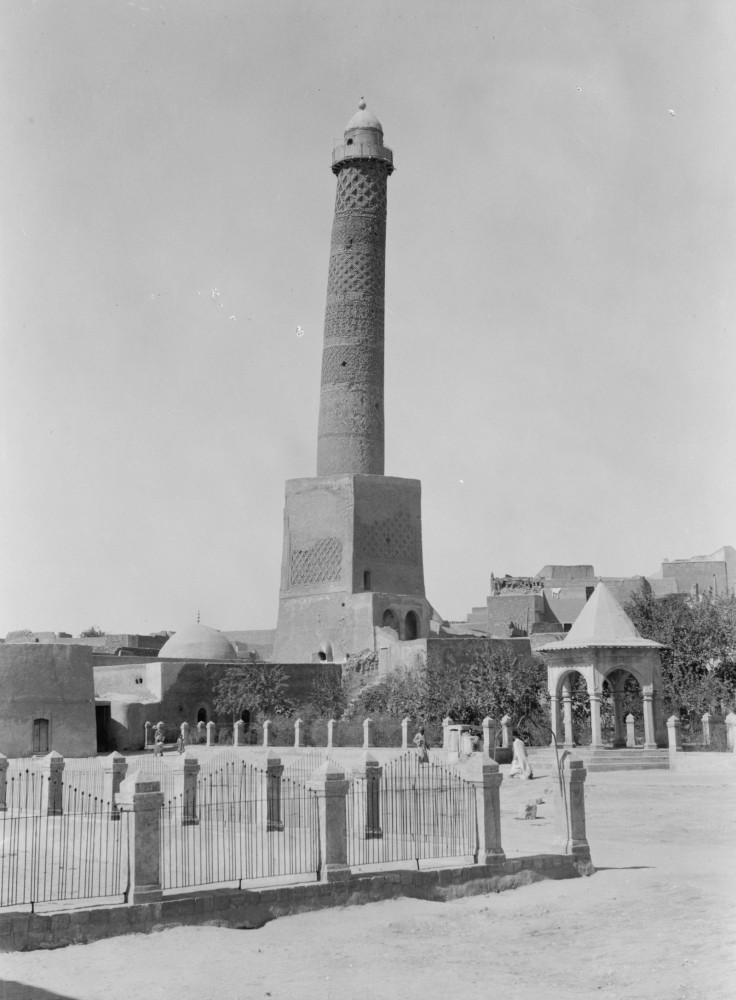'Dead' Isis blew up iconic Mosul Al-Nuri mosque 'to save face'
IBTimes UK speaks with counter-terrorism expert about possible reasons behind mosque destruction.
Isis may have blown up the iconic mosque in Mosul where it declared its 'Caliphate' in 2014 to avoid humiliation, a counter-terrorism expert has told IBTimes UK.
The Iraqi army said on Wednesday ( 21 June) the group had destroyed the Great Mosque of al-Nuri as forces were advancing in Mosul, which Isis seized in 2014.
Iraqi Prime Minister Haider al-Abadi said the destruction of the mosque – which Isis blamed on a coalition of forces fighting the terrorists – was "an official declaration of defeat" by the group.
The mosque, built in the 12th century, was famous for its leaning minaret. The tilting minaret gave Mosul the nickname of "The Hunchback".
The building was used by Isis leader Abu Bakr al-Baghdadi to deliver a speech in which he announced the establishment of a caliphate in Mosul, weeks after the group took control of the town.
"The same mosque that was used by Baghdadi to declare the Caliphate cannot be seen under the control of the coalition against Isis. Destroying it can be best interpreted as not captured, " David Otto told IBTimes UK.
"If Isis did indeed destroy the Mosque, then it is an indication that the Caliphate idea is dead and buried."
The destruction of the mosque came as troops are recapturing territories previously controlled by Isis. A coalition led by the US has been helping the Iraqi army in the fight against Isis since October 2014.
The Iraqi army, the Kurdistan Regional government and the US-led coalition are also involved in what is known as the 'Battle for Mosul', a joint military offensive that began in October 2016 and aims to retake control of the besieged town.
The army recaptured eastern Mosul in January and is now fighting to retake control of the western part of the city.
The UN has said that at least 750,000 people have fled since operations to recapture Mosul began.
The organisation said earlier in May another 200,000 people could be displaced by the conflict as military operations move closer to Mosul's Old City.

According to Otto, the destruction of the mosque is another blow to the already weakening Isis insurgency, given the fact the Islamist outfit is losing control of key areas of the town and is seeing some of its foreign fighters abandon the group.
"The strategy of having foreign fighters travelling to Isis-held zone will dwindle downwards or perhaps halt, making it much easier for governments to develop internal anti-terrorism and counter-terrorism strategies against home-grown terrorists," Otto explained.
"Taking hold of a vast territory is one thing, to succeed to govern and maintain influence within that territory against well sophisticated coalition forces is [what] Isis did not foresee.
"The destruction of the mosque could be an opportunity for the world to know if actually Baghdadi is dead or alive. If he were alive, he would likely be making a statement to his followers," Otto concluded.
Earlier this month, Russia said it was investigating whether one of its air strikes killed Baghdadi in an attack targeting Isis leaders in Raqqa, Syria, on 28 May.
© Copyright IBTimes 2025. All rights reserved.




















